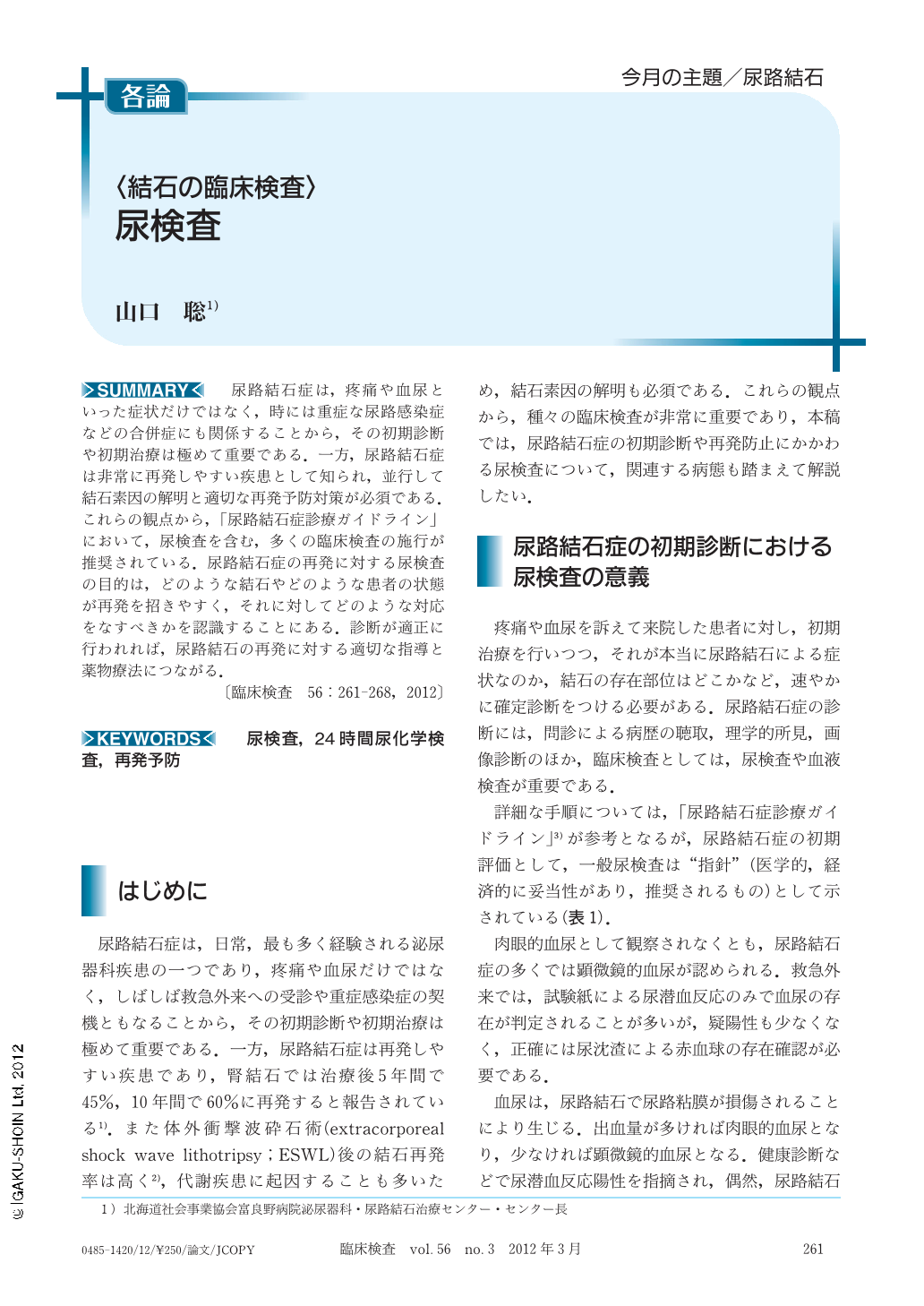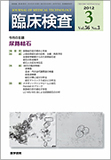Japanese
English
- 有料閲覧
- Abstract 文献概要
- 1ページ目 Look Inside
- 参考文献 Reference
尿路結石症は,疼痛や血尿といった症状だけではなく,時には重症な尿路感染症などの合併症にも関係することから,その初期診断や初期治療は極めて重要である.一方,尿路結石症は非常に再発しやすい疾患として知られ,並行して結石素因の解明と適切な再発予防対策が必須である.これらの観点から,「尿路結石症診療ガイドライン」において,尿検査を含む,多くの臨床検査の施行が推奨されている.尿路結石症の再発に対する尿検査の目的は,どのような結石やどのような患者の状態が再発を招きやすく,それに対してどのような対応をなすべきかを認識することにある.診断が適正に行われれば,尿路結石の再発に対する適切な指導と薬物療法につながる.
Urolithiasis is a common disease in an out-patient urological clinic. The main symptom is severe back, flank, and lower abdominal pain with hematuria. It sometimes leads to a serious urinary tract infection. Consequently, the initial diagnosis and primary care are extremely important. On the other hand, urinary stone disease recurs easily if suitable prevention is not performed. An elucidation of urinary stone diathesis is essential after stone removal. In the Japanese clinical guidelines for urinary stone treatment, peripheral blood cell count, blood chemistry, stone component analysis, and urinary evaluation are indicated as an evaluation of urinary stone. 24-hour urine collection is very useful for patients with recurrent stone episodes. Urolithiasis is a multi-factorial disease. Consequently, we have to evaluate these data comprehensively. Clinical laboratory investigation, especially urine evaluation, is mandatory for diagnosis, treatment, and prevention of recurrence of urinary stone disease.

Copyright © 2012, Igaku-Shoin Ltd. All rights reserved.


